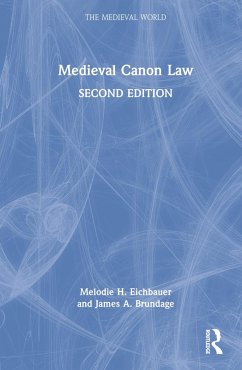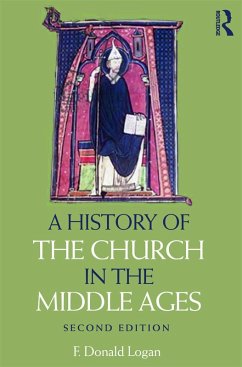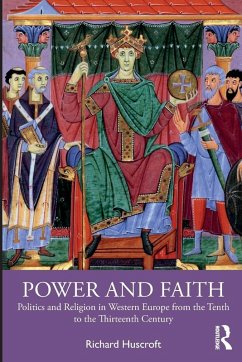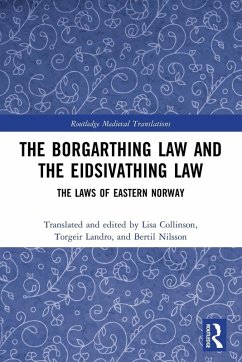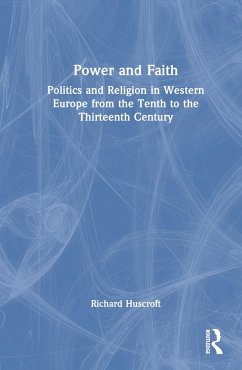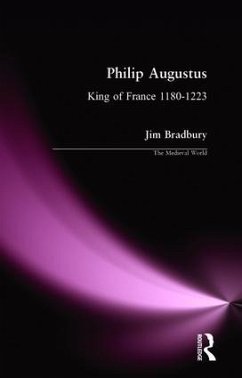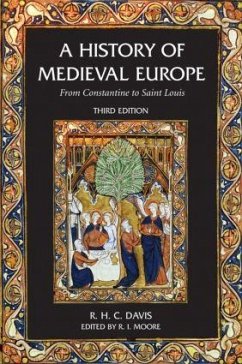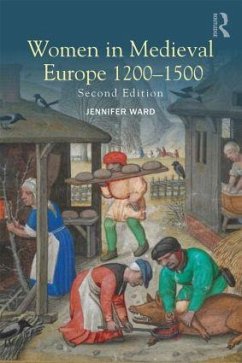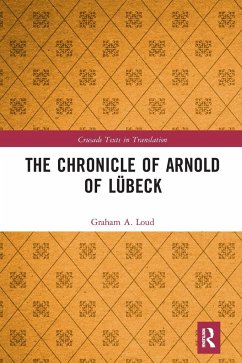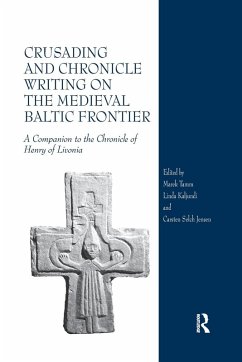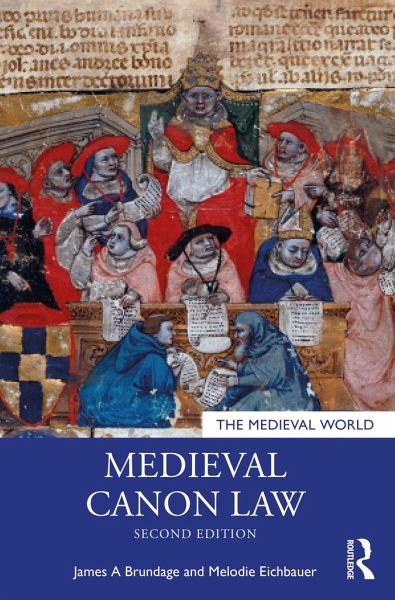
Medieval Canon Law
Versandkostenfrei!
Versandfertig in 6-10 Tagen
42,99 €
inkl. MwSt.
Weitere Ausgaben:

PAYBACK Punkte
21 °P sammeln!
It is impossible to understand how the medieval church functioned and, in turn, influenced the lay world within its care without understanding "canon law". This book examines its development from its beginnings to the end of the Middle Ages, updating its findings in light of recent scholarly trends.This second edition has been fully revised and updated by Melodie H. Eichbauer to include additional material on the early Middle Ages; the significance of the discovery of earlier versions of Gratian's Decretum; and the new research into law emanating from secular authorities, councils, episcopal a...
It is impossible to understand how the medieval church functioned and, in turn, influenced the lay world within its care without understanding "canon law". This book examines its development from its beginnings to the end of the Middle Ages, updating its findings in light of recent scholarly trends.
This second edition has been fully revised and updated by Melodie H. Eichbauer to include additional material on the early Middle Ages; the significance of the discovery of earlier versions of Gratian's Decretum; and the new research into law emanating from secular authorities, councils, episcopal acta, and juridical commentary to rethink our understanding of the sources of law and canon law's place in medieval society. Separate chapters examine canon law in intellectual spaces; the canonical courts and their procedures; and, using the case studies of deviation from orthodoxy and marriage, canon law in the lives of people. The main body of the book concludes with the influence of canon law in Western society, but has been reworked by integrating sections cut from the first edition chapters on canon law in private and public life to highlight the importance of this field of research. Throughout the work and found in the bibliography are references to current literature and resources in order to make researching in the field more accessible. The first appendix provides examples of how canonical texts are cited while the second offers biographical notes on canonists featured in the work. The end result is a second edition that is significantly rewritten and updated but retains the spirit of Brundage's original text.
Covering all aspects of medieval canon law and its influence on medieval politics, society, and culture, this book provides students of medieval history with an accessible overview of this foundational aspect of medieval history.
This second edition has been fully revised and updated by Melodie H. Eichbauer to include additional material on the early Middle Ages; the significance of the discovery of earlier versions of Gratian's Decretum; and the new research into law emanating from secular authorities, councils, episcopal acta, and juridical commentary to rethink our understanding of the sources of law and canon law's place in medieval society. Separate chapters examine canon law in intellectual spaces; the canonical courts and their procedures; and, using the case studies of deviation from orthodoxy and marriage, canon law in the lives of people. The main body of the book concludes with the influence of canon law in Western society, but has been reworked by integrating sections cut from the first edition chapters on canon law in private and public life to highlight the importance of this field of research. Throughout the work and found in the bibliography are references to current literature and resources in order to make researching in the field more accessible. The first appendix provides examples of how canonical texts are cited while the second offers biographical notes on canonists featured in the work. The end result is a second edition that is significantly rewritten and updated but retains the spirit of Brundage's original text.
Covering all aspects of medieval canon law and its influence on medieval politics, society, and culture, this book provides students of medieval history with an accessible overview of this foundational aspect of medieval history.





